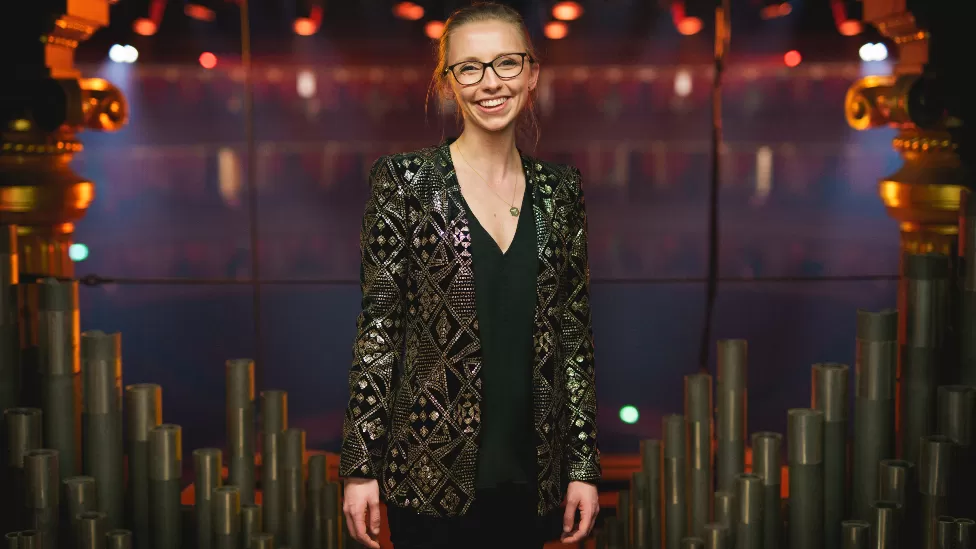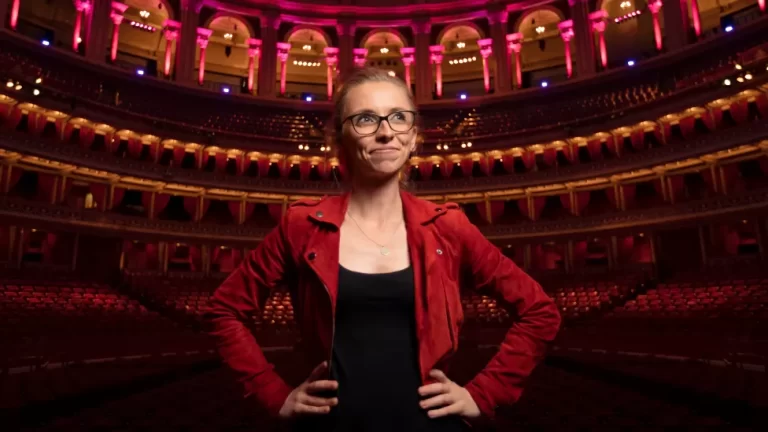“You are playing an entire building and that is something that never gets old.”
Anna Lapwood – the Taylor Swift of classical music, as she has been nicknamed – has become one of the world's most famous organists. She is 28, and tonight the entire building in question is the Royal Albert Hall.
It is 02:00 BST and Bach's Toccata and Fugue in D Minor is echoing around the circular walls of the world famous venue. A strange time to be practising? Not for Lapwood.
“It is the only time we organists can get in, have the place to ourselves and play this amazing thing at full blast – because it really is very, very loud, and you can't be disturbing people while they are trying to work,” she tells BBC News.
This “amazing thing” is the Henry Willis organ – once the largest instrument in the world – which was played at the Hall's opening ceremony in 1871. Refurbished several times, it now has 9,999 pipes, stands 70ft high and weighs around 150 tonnes.
But thanks to her hugely popular social media accounts, Lapwood is giving an instrument with a rather traditional image a whole new fan base. She started posting videos of her organ performances during lockdown, now they often get millions of views.
“That was all down to a couple of girl choristers who I teach, who turned around to me one day and said, ‘Miss Lapwood we really think you'd be quite good at TikTok, have you thought of giving it a go?'” she recalls. “That's what I have done and it seems to work.”
It is not just her performances which have proved popular, but behind-the-scenes explainers into the way pipe organs work, unexpected mash-ups – Bach meets Faithless at the Ministry of Sound Classical earlier this month, for example.
“I never thought me playing the organ would lead to 5,000 people screaming!” she smiles. Lapwood has also become known for unexpected celebrity encounters – Benedict Cumberbatch having just performed Letters Live at the Royal Albert Hall, asked her to play – and then invited her to join the performance the next night.
“A lot of people actually love the sound of the organ but some people have negative associations with sitting in church bored as a child for whatever reason. That can be something to fight against,” she says.
“The big thing I've learned from the past couple of years is being yourself and being honest about who you are – I think that is really, really important”. According to the Sunday Times' Clemency Burton-Hill, Lapwood “is much more than a gifted organist, choral conductor and social media sensation, she's a star on a mission”.

The paper described her as a “formidably talented” musician who was enjoying a “meteoric rise”. Her performance at the BBC Proms was recently praised by Nick Kimberley of the Evening Standard in a four-star review.
“Lapwood's music was evocative, deploying the organ's entire range, from the merest whisper to stadium-rock pomp at full volume,” he wrote. “A full Albert Hall was entranced throughout.”
Audience was ‘entranced'
Only around 8% of organ recitals are performed by women. How important is it for Anna that that changes?
“Yes, I see part of my job, part of my role is trying to make it a place where the next generation of female organists feel comfortable and welcome.”
Lapwood says she was once told to “play like a man”.
“In a competition when I was 19 or so one of the adjudicators asked me to play ‘more like a man' and when I asked him what he meant he said ‘play with more power and authority', and I just thought hmm, I'm not sure about that,” she recalls.
Given pipe organs are large and immobile, some may wonder how realistic is it to expect more people to start playing them.
But, she counters: “Almost every church has an organ, and I don't know any organist who isn't desperately hoping to encourage the next generation to play. I would say if you have a child who says ‘I would really like to play the organ' introduce them to the director of music there and say ‘can I have a go?'
“When you get to play it, it's contagious, it's infectious, you never want to let it go.”
— CutC by bbc.com


